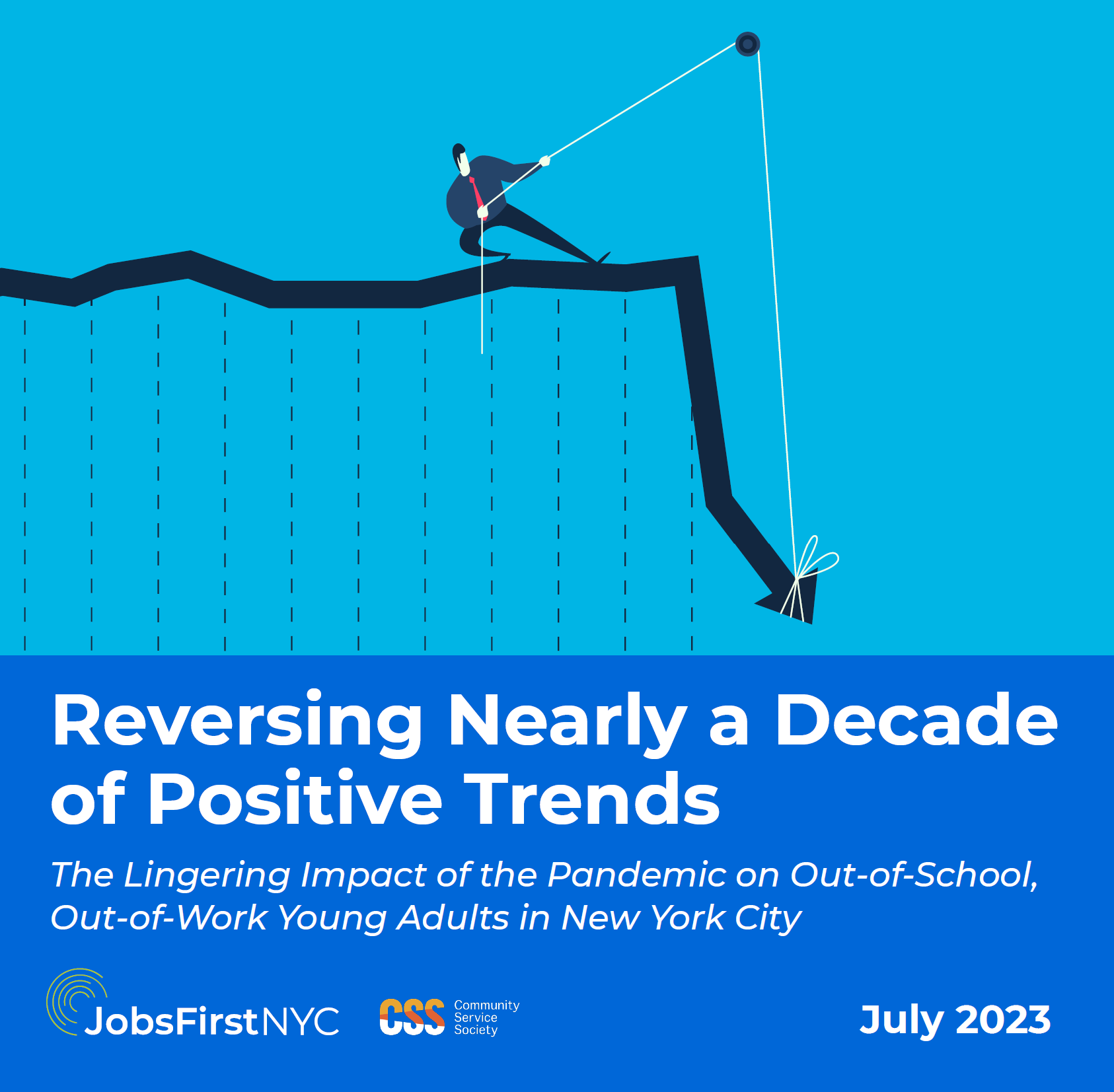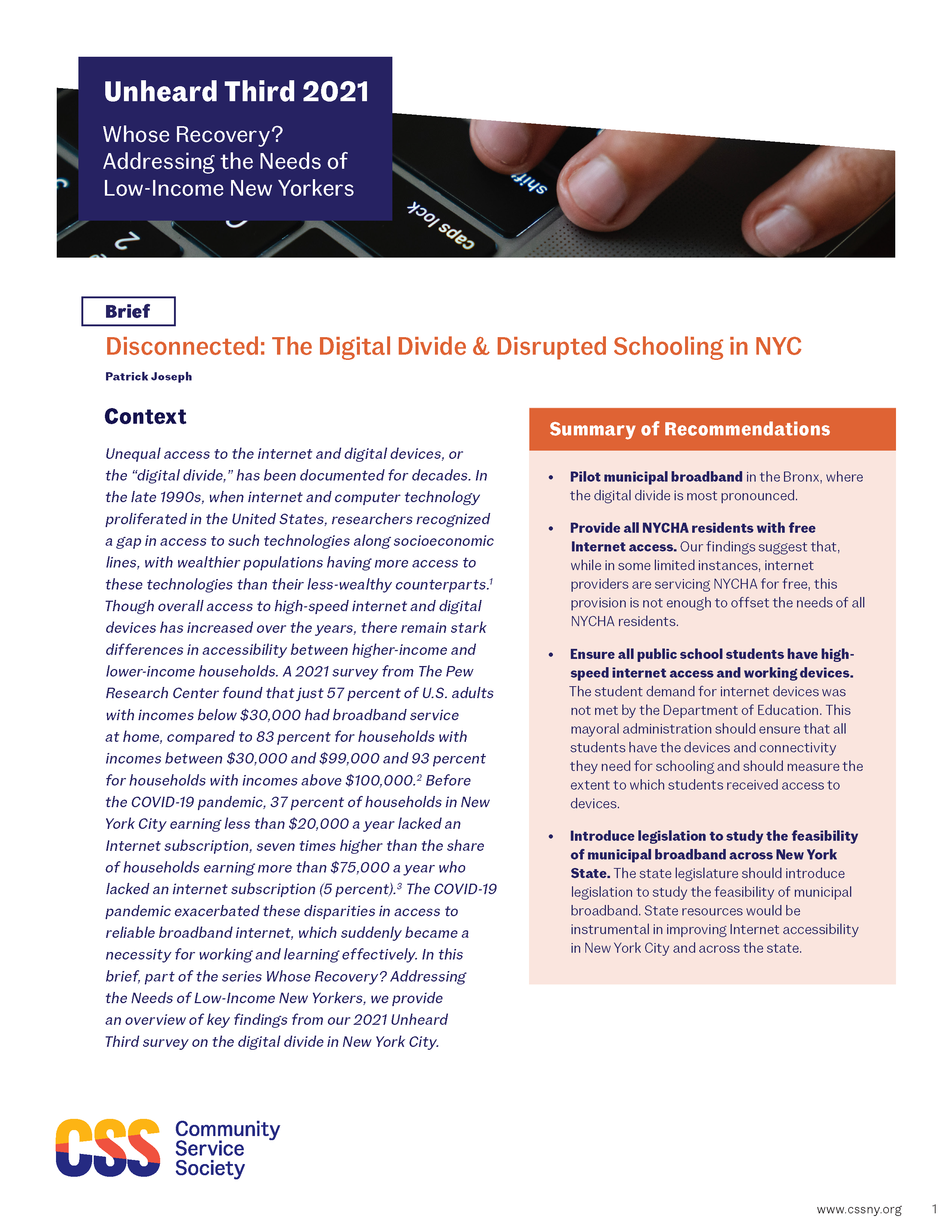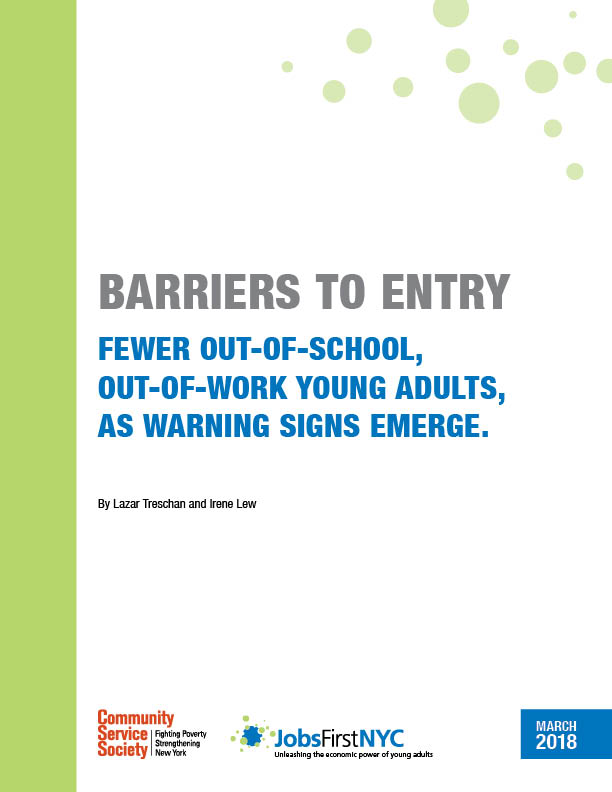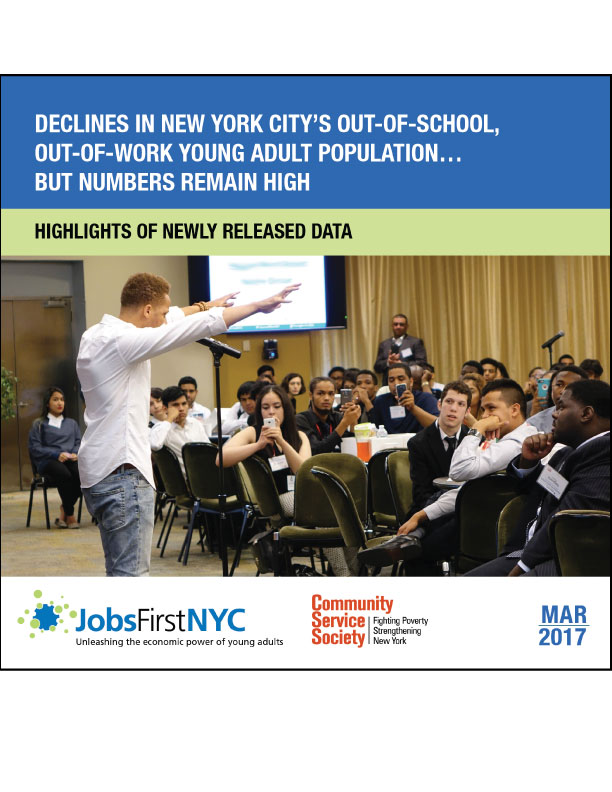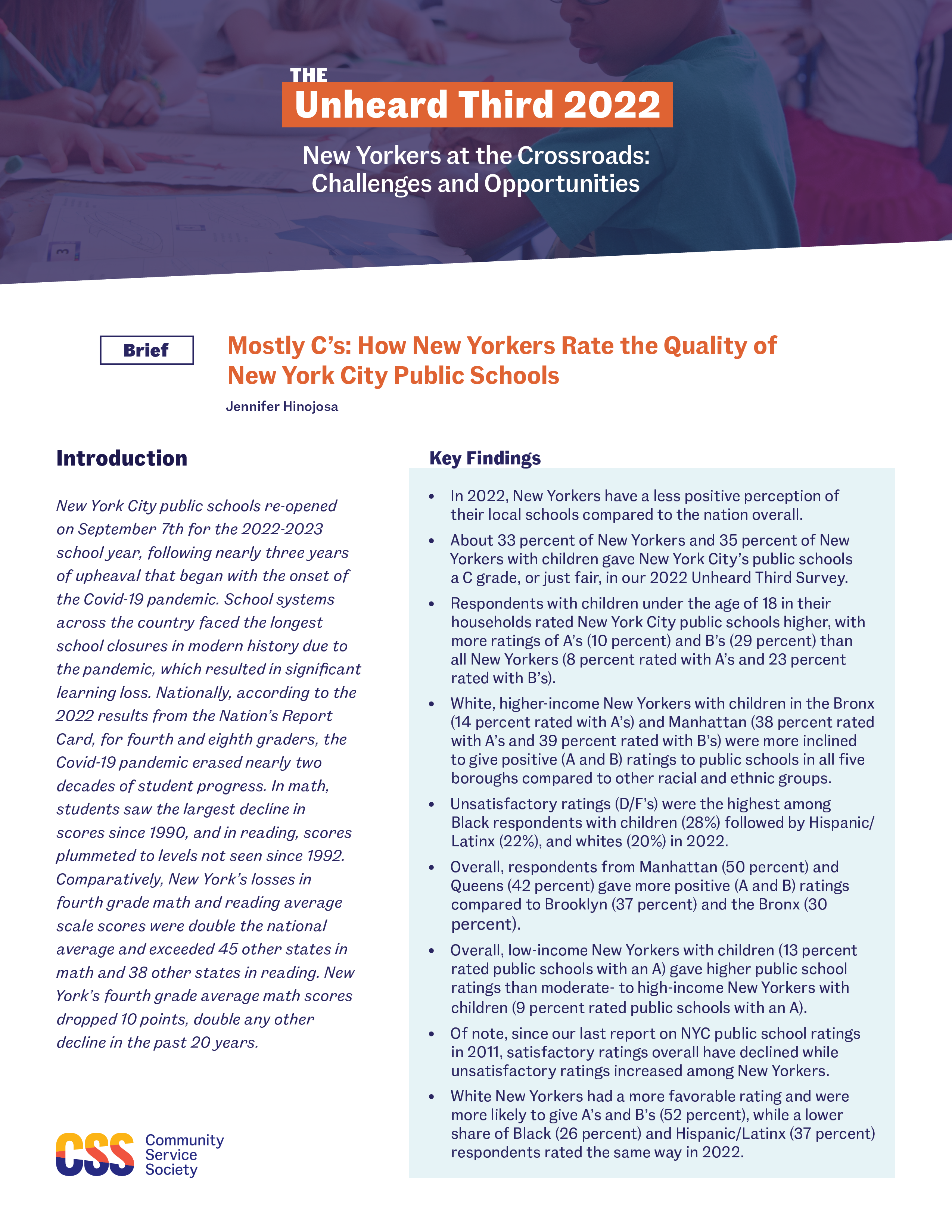
Join Us
Youth Policy
CSS research helped define the problem of disconnected youth—young people ages 16 to 24 who are not in school and not working. Now, our advocacy and policy analysis are helping to galvanize public support for programs and policies that help New York City’s more than 175,000 disconnected young people reconnect to education and work.
Out of School, Out of Work, But Not Out of Luck
In a 2005 report, CSS identified a large cohort of “disconnected youth” in New York City. Our work generated significant publicity and policy activity. When Mayor Bloomberg developed his Commission on Economic Opportunity (which later became the Center for Economic Opportunity), disconnected youth were one of its three major foci. The mayoral administration has since developed several new initiatives to support organizations working to reconnect this population to education and the workforce.
CSS remains a leading advocate in this field. We issue regular reports about challenges facing this population and ways that the public sector can better serve it. We also helped found the Campaign for Tomorrow’s Workforce, a citywide coalition of organizations that provide services to disconnected youth. Along with its partners, United Neighborhood Houses and Neighborhood Family Services Coalition, CSS leads the CTW in a range of advocacy efforts, including testimony at public hearings, meetings with city and state officials, and developing policy proposals aimed at connecting greater numbers of New York City youth to opportunities for education, skills attainment, and jobs.
A Focus on GED and Basic Skills
In 2009, CSS published a major report on the GED system in New York City. The report generated significant public response, including a lead editorial in the New York Times. Since then, CSS has engaged in conversations throughout the state on GED system reform, including committees, panels, and hearings at every level of government.
In 2010, CSS released a study of Latino young people in New York City, which brought a new focus to challenges facing Latino youth, including highlighting the idea that the major issue Latino youth face is not related to language (85 percent speak English well or better), but high school graduation and GED attainment.
Making the System Work for Disconnected Youth
In 2008, CSS produced an inventory of the range of public resources available for disconnected youth. The report exposed the lack of a coherent “system” of reconnection programs, as well as a supply of services that did not meet the demand.
CSS continues to work with the public sector to find ways to not only preserve and increase resources for disconnected youth, but to explore how existing funding can be better utilized.
Building off the findings of a 2011 report, CSS worked with the City Council to hold hearings and introduce legislation charging the city's Human Resources Administration (HRA) with better supporting young people on public assistance to build their basic skills through educational programming. In response to our report, HRA issued new policy directives incorporating several of our recommendations.

